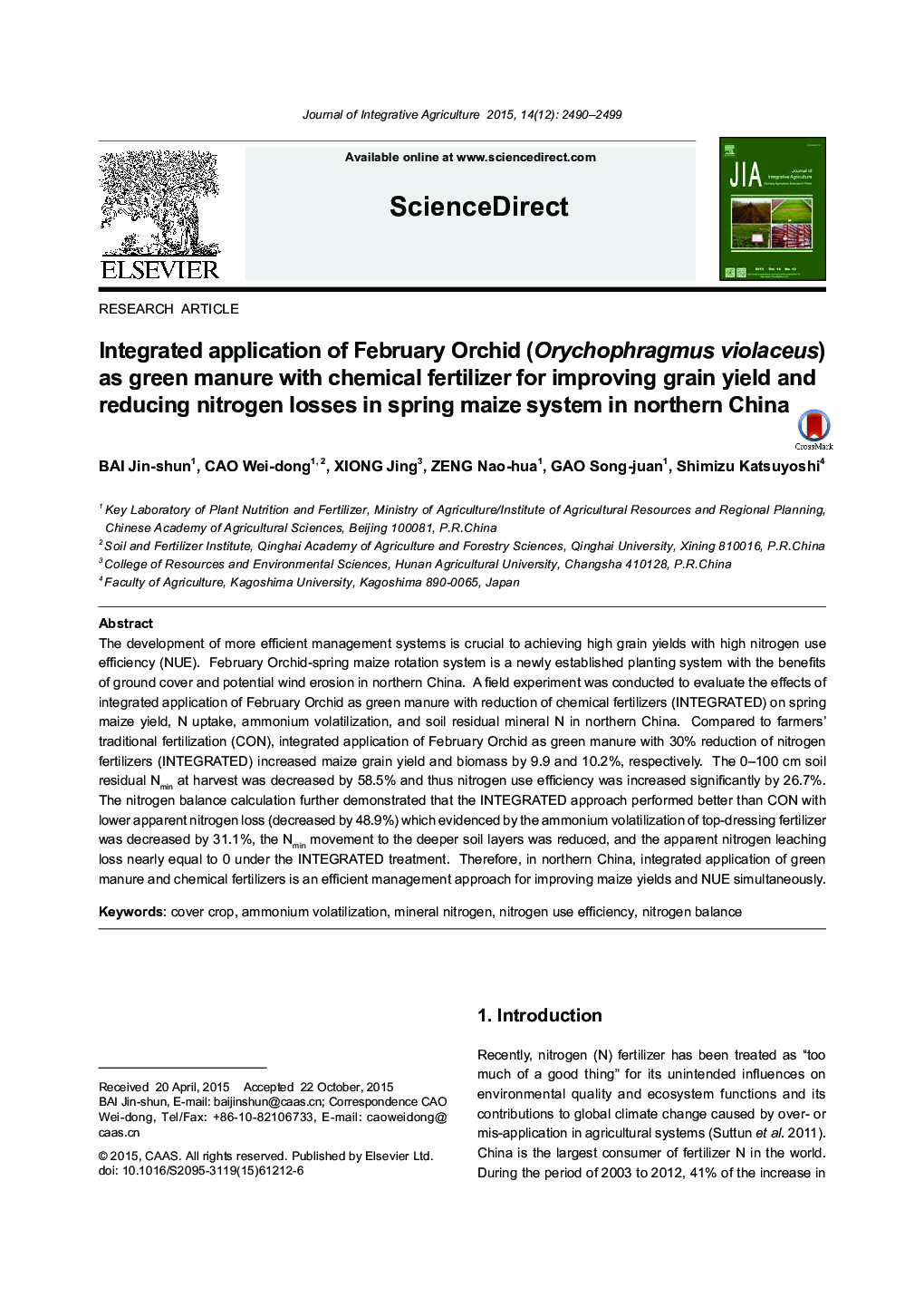| Article ID | Journal | Published Year | Pages | File Type |
|---|---|---|---|---|
| 4494137 | Journal of Integrative Agriculture | 2015 | 10 Pages |
The development of more efficient management systems is crucial to achieving high grain yields with high nitrogen use efficiency (NUE). February Orchid-spring maize rotation system is a newly established planting system with the benefits of ground cover and potential wind erosion in northern China. A field experiment was conducted to evaluate the effects of integrated application of February Orchid as green manure with reduction of chemical fertilizers (INTEGRATED) on spring maize yield, N uptake, ammonium volatilization, and soil residual mineral N in northern China. Compared to farmers’ traditional fertilization (CON), integrated application of February Orchid as green manure with 30% reduction of nitrogen fertilizers (INTEGRATED) increased maize grain yield and biomass by 9.9 and 10.2%, respectively. The 0–100 cm soil residual Nmin at harvest was decreased by 58.5% and thus nitrogen use efficiency was increased significantly by 26.7%. The nitrogen balance calculation further demonstrated that the INTEGRATED approach performed better than CON with lower apparent nitrogen loss (decreased by 48.9%) which evidenced by the ammonium volatilization of top-dressing fertilizer was decreased by 31.1%, the Nmin movement to the deeper soil layers was reduced, and the apparent nitrogen leaching loss nearly equal to 0 under the INTEGRATED treatment. Therefore, in northern China, integrated application of green manure and chemical fertilizers is an efficient management approach for improving maize yields and NUE simultaneously.
